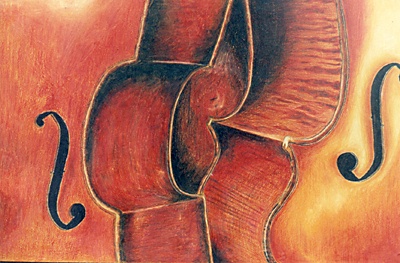All Nonfiction
- Bullying
- Books
- Academic
- Author Interviews
- Celebrity interviews
- College Articles
- College Essays
- Educator of the Year
- Heroes
- Interviews
- Memoir
- Personal Experience
- Sports
- Travel & Culture
All Opinions
- Bullying
- Current Events / Politics
- Discrimination
- Drugs / Alcohol / Smoking
- Entertainment / Celebrities
- Environment
- Love / Relationships
- Movies / Music / TV
- Pop Culture / Trends
- School / College
- Social Issues / Civics
- Spirituality / Religion
- Sports / Hobbies
All Hot Topics
- Bullying
- Community Service
- Environment
- Health
- Letters to the Editor
- Pride & Prejudice
- What Matters
- Back
Summer Guide
- Program Links
- Program Reviews
- Back
College Guide
- College Links
- College Reviews
- College Essays
- College Articles
- Back
Want Better Grades? Play Music!
Want Better Grades? Play Music!
Have you ever noticed the different types of emotions received from listening to your daily music? There is the most common emotion with music, which is happiness, but there is also others. Such as being “pumped up”, sadness, anger, confusion, and sometimes even peacefulness.
Not only does music have an effect on emotion, but it also has an effect on your stress levels. Different types of music can heighten or drop your stress levels, depending on the tempo, as well as the lyrics of the song. But it is not just stress. “Suzanne Hanser, chair of the music therapy department at the Berklee College of Music in Boston. "Research shows that making music can lower blood pressure, decrease heart rate, reduce stress, and lessen anxiety and depression.”
With the idea of listening to music in mind, what do you think the effect of playing the music yourself would have on your emotional state? The significant difference between the two is that when listening to the music, you get the emotion given through lyrics or tempo, but playing the music, no matter the sadness of the lyrics, or slowness of the tempo, there will still be that release of stress.
With this release of stress, comes a better way of handling the amount of stress that school can put on oneself. “Structured music lessons significantly enhance children’s cognitive abilities — including language-based reasoning, short-term memory, planning and inhibition — which lead to improved academic performance.” Someone who does not play an instrument will lack these learned abilities that are crucial to ensuring academic success.
The other night my 8 year old brother was energetic and running back and forth between the kitchen and the living room. I then realized that he was listening to a song for a battle scene from the game Undertale. The actions taken after had surprised me.
I hugged him, asked him how he was feeling, and set him down in a bean bag chair with a blanket over him, and put on some calming acoustic guitar songs. I told him to count to 4 repeatedly on each beat of the songs played, and to breathe in on count 1 and 2, then to breathe out on 3 and 4.
The results I wanted worked better than expected. He was very calm and took a 10 minute nap before waking up again in a much calmer mood. The difference in the mood of the music he was listening too, compared to the music I gave him proves that music does have an effect on emotions and physical conditions of the person.
In 5th grade I had made the best decision of my entire life. I had signed up to learn how to play the violin. Every Tuesday and Thursday after school I had to stay after school for an hour for violin lessons. After the first year of learning I had been hooked.
In middle school there was an option to have Orchestra as a CLASS rather than an after school program. This was by far the best class of the day, and to this day I still believe this. After 7 years, most of my friends have come from meeting them during class.
If taking a music course was more enforced than it is now, there would be more people to talk too, and the groups of people would be more diverse than what they are right now.
Rather than the “cool kids”, the “druggies”, and the “nerds”, there would possibly be, the “percussionists”, the “melodists”, etc. "Despite the staggering diversity of music influenced by countless cultures and readily available to the modern listener, our shared human nature may underlie basic musical structures that transcend cultural differences," says Samuel Mehr at Harvard University.
With that said, not only would it affect student groups, but it would affect the way people in society with different cultures would react towards each other. Each culture and regions around the world have different languages, but reading music is the universal language of the world.
Someone from America can play the note D, and someone from China can also play the note D. It all depends on the ability of the agent to read the music.
Overall, students should be pushed more to take any type of music course while they are in school. It will get them better grades, introduce a new coping mechanism, and bring the world closer together than it ever would be.

Similar Articles
JOIN THE DISCUSSION
This article has 0 comments.
